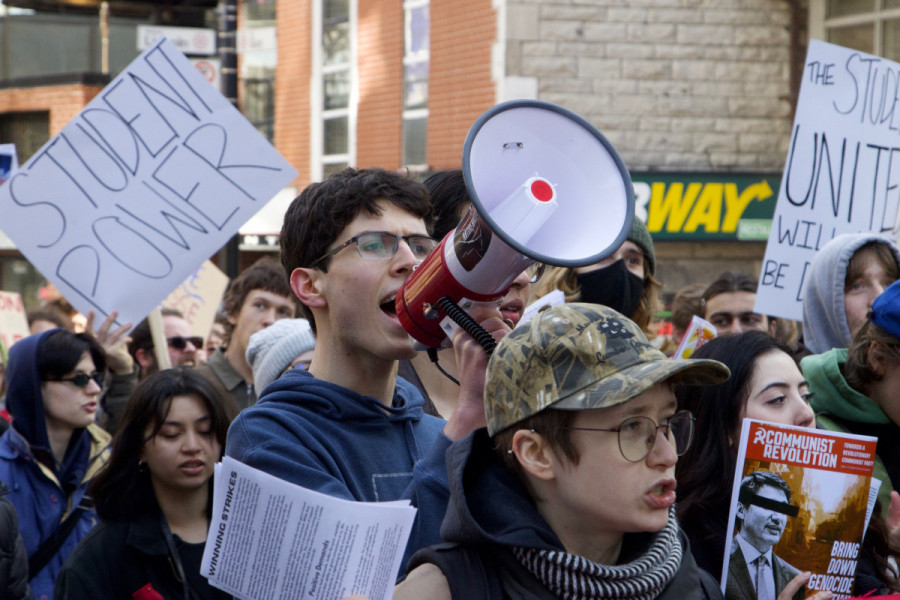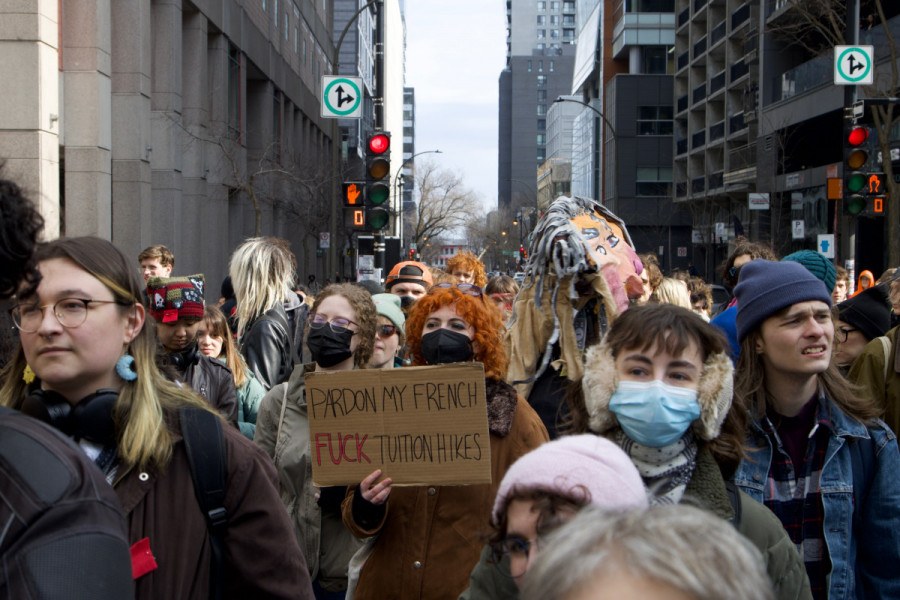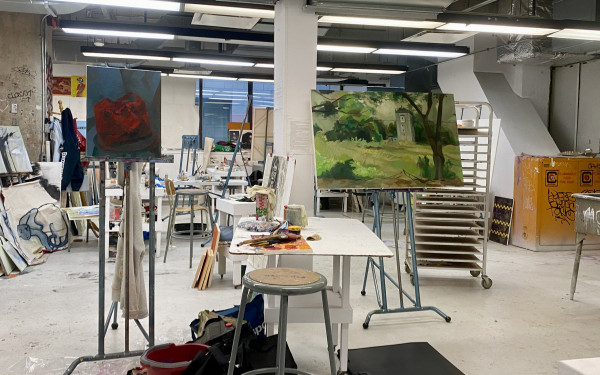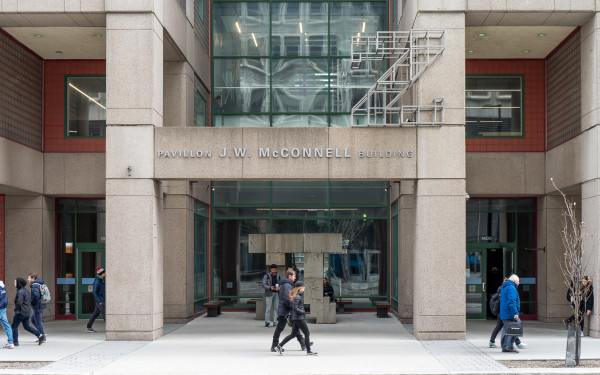Striking ConU students and staff protest tuition hikes
During Concordia’s strike week, demonstrators call for free education
On March 13, around 400 Concordia students, faculty and staff gathered on the corner of Mackay and De Maisonneuve Street to the sound of upbeat tunes, clanking pots and pans, and the croak of trombones and trumpets.
On that same date, over 22,000 students across various student associations were on strike from their classes, with hard-picketing measures enforced all throughout the Hall building as well as on Loyola campus. The strike officially started on March 11 and is set to end by March 15. However, some departments have discussed an unlimited general strike.
Under the afternoon sun, volunteers coated Mackay with red paint reading “Free education” in light of the Coalition Avenir Québec imposed hikes, which exclusively target anglophone universities in the province.
Dominik Séguin, one of the volunteers and a third-year student in the English literature program, believes the implementation of the hikes is only the first step in a series of other “discriminatory measures.”
“What’s to stop [Premier François] Legault from making more laws that affect anglophones, or any other group?” said Séguin, while swiping her red-stained paintbrush on the concrete. “If people are leaving after their education, I can guarantee you it’s because they don’t feel welcome here.”
Quebec’s minister of higher education Pascale Déry argues in favour of the hikes, saying that out-of-province students and international students leave the province after their studies and that the new increase “better reflects what it costs to educate a university student.”

One organizer of the strike and march movements, Valérie Brunelle, was present at the protest, dragging a doll meant to portray Déry.
“I made it so people are familiar with who their enemies are,” said Brunelle, who shared how her graduation is now under threat due to class cuts.
Due to dwindling enrollment and the impending tuition hikes, Concordia University began “significantly cutting costs” through a variety of measures, such as course reductions, salary and hiring freezes.
“We’re in an affordability crisis. Students are already overrepresented in a bunch of issues, like housing and food access,” said Brunelle. “To add even more stress is unacceptable.”
Protesters, led by Arts and Science Federation of Associations’ academic coordinator Angelica Antonakopoulos, shouted in unison, “Free education is a right, not just for the rich and white” and “no to privatization, yes to education.”
Around 4 p.m., the Concordia march arrived at McGill University's Roddick gates. McGill students joined the protest, which then stood at the doors of Legault’s office. Demonstrators were invited to take the microphone and share their opinions on the tuition hikes. The stop at the office concluded with a two-minute cacophony of instruments, voices, megaphone sirens and cookware.
Despite the high energy, Daniela Alcantara Villarreal, a first-year psychology student at Concordia, felt the march was rather small compared to the number of students on strike.
“I was hoping to see more people, but everyone that was there was there to shout, to support, and to make noise. It really felt like we were rallied behind the same goal,” said Villarreal.
“When we’re out in the streets, the idea is that we are all united and that I am supporting you as much as you are supporting me.”
A united front for the fight against tuition hikes was especially urged by CREW mobilization officer Becca Wilgosh.
“The basis of our power is in collective action,” said Wilgosh. “A critical mass is unstoppable and forces the university and the government to take education as the important social service that it is.”
The march looped its way back to the Maisonneuve and Mackay intersection, where protesters were encouraged to help picket classrooms.







